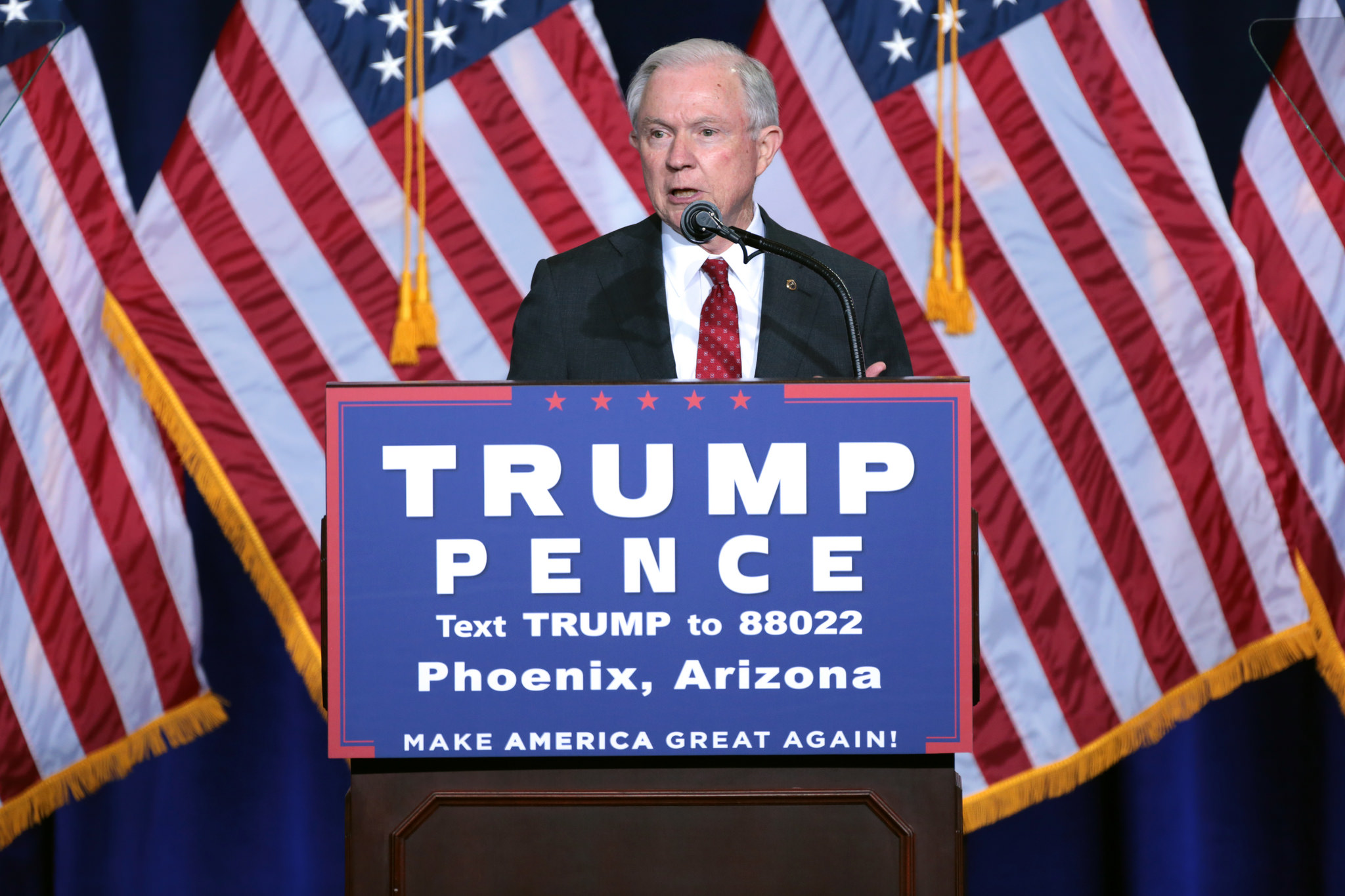
Photo Credit: Gage Skidmore, Creative Commons 2.0
In 1984, Congress passed the Sentencing Reform Act and set up the Sentencing Commission, a governmental body that wrote stringent sentencing guidelines for drug offenders. Since the law was passed and the commission was created, the federal prison population has grown by nearly 800 percent. A large portion of that growth came from the influx of drug-crime inmates who, thanks to the commission’s guidelines, have had to serve at least 85 percent of their sentence. A report released in 1995 attributed the new sentencing policies to the delirium surrounding a perceived increase in drug use: “drug abuse in general, and crack cocaine in particular, had become in public opinion and in members’ minds a problem of overwhelming dimensions.” But according to research carried out by the Pew Charitable Trusts, the policies implemented during the war on drugs have had little effect on issues of violence and drug abuse. In fact, the policies have had the opposite effect, resulting in the increased use of illegal drugs, which are now purer than ever, and static rates of recidivism. Criminal Justice Reformers have thus found it questionable that Attorney General Jeff Sessions has been a vocal opponent of sentencing reform.
Letter
AG Sessions expressed his woes in a letter, intercepted by The Washington Times, to Republican Senator Chuck Grassley, who chairs the Senate Judiciary Committee: “The legislation would reduce sentences for a highly dangerous cohorts of criminals, including repeat dangerous drug traffickers and those who use firearms and would apply retroactively to many dangerous felons, regardless of citizenship or immigration status,” wrote Sessions. Once again, the Attorney General’s comments appear strange in light of the Pew study, released in 2015. According to the study, even if the sentencing guidelines were meant to target serious offenders, they have resulted in the caging of people who have committed minor offenses.
Tweet
Senator Grassley, himself a Republican, expressed disappointment at Session’s remarks. In a tweet, Mr. Grassley said that he was “[i]ncensed by Sessions letter,” which the Senator regarded as “[a]n attempt to undermine … BIPARTISAN criminal justice reforms.” He closed the tweet in an unfettered emotional rebuke: “AGs execute laws CONGRESS WRITES THEM!”
Limiting Mandatory Minimum Sentences
The bill, entitled the Sentencing Reform and Corrections Act of 2017, would limit the scope of mandatory minimum sentences, which were implemented in 1986 with the passing of the Anti-Drug Abuse Act. Mandatory minimums would be strictly employed in cases involving violent crimes and serious drug offences. Under the measure, judges would be permitted to use their discretion when sentencing non-violent offenders, elderly or terminally-sick inmates could be released early, life without parole sentences for juvenile offenders would be abolished, and a commission would be created to recommend further reforms.
Expanding Mandatory Minimum Sentences
The bill would increase mandatory minimum sentences for certain offences. For example, anyone convicted of sending weapons to terrorists and blacklisted countries could be subject to more severe penalties. The same would go for domestic abusers who travel between states and those who deal fentanyl, a powerful opioid that has led to increased overdoses.
Brief History
The tension between Senator Grassley and AG Sessions is not unprecedented. When in 2015 Grassley first attempted to pass a similar measure, Sessions pushed back and convinced Senate Majority Leader Mitch McConnell to block the bill.
The Administration’s Position
The White House has remained mostly quiet with respect to the proposed legislation, though it appears the President’s adviser/son-in-law Jared Kushner has been offering input. The position of the White House was made clear in May, 2017, when Sessions released a memo asking federal prosecutors “to charge and pursue the most serious, readily provable offense.” He elaborated: “[T]he most serious offenses are those that carry the most substantial guidelines sentence, including mandatory minimum sentences.”
With endorsements coming from the NFL, the Charles Koch Institute, the ACLU, the NAACP and other large organizations, Grassley and his democratic colleagues might be able to push the bill onto the floor for a vote. We’ll have to wait and see.



Leave a Comment